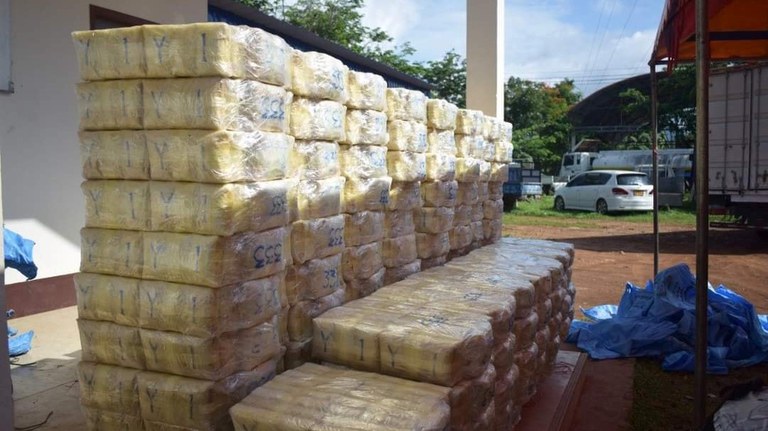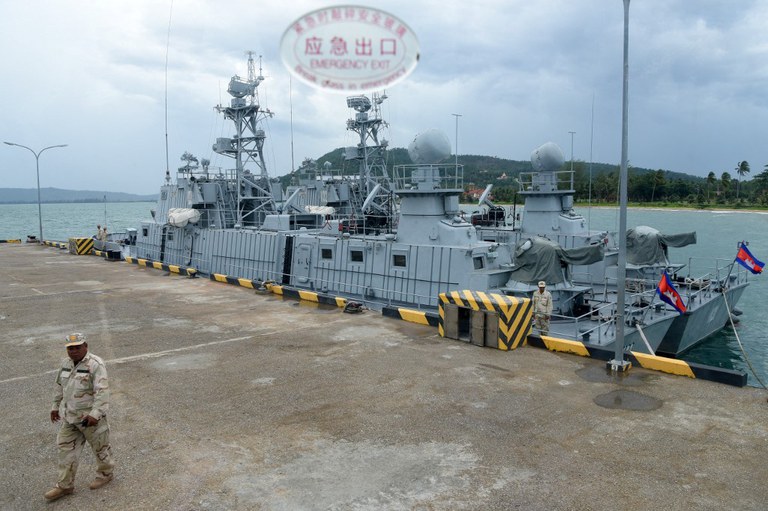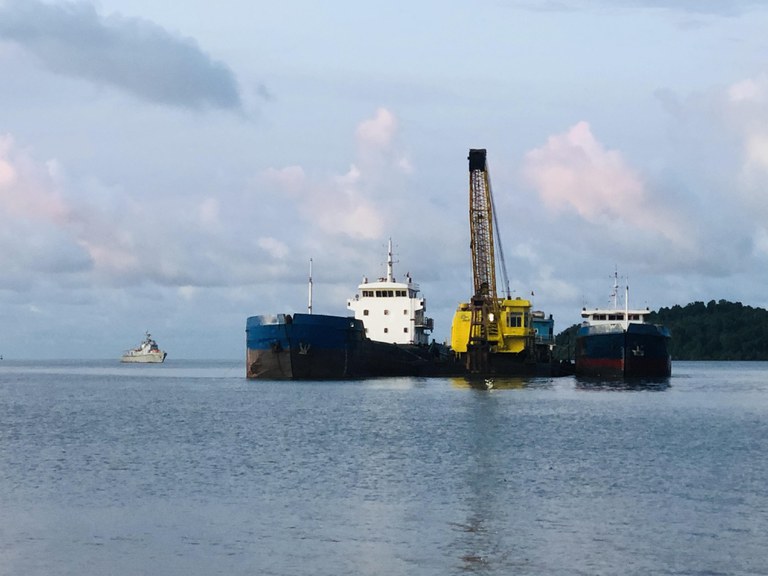Filipino fishermen, boat owner ‘compensated’ for South China Sea ramming incident
Filipino fishermen whose boat sank in 2019 after a Chinese trawler rammed into it in disputed South China Sea waters have received six million Philippine pesos (U.S $113,421) in compensation, the Department of Justice said Wednesday. However, a fishers’ association criticized the settlement for the 22 fishermen and the owner as too little and coming too late. Justice Undersecretary Adrian Sugay told reporters that the owner of the F/B Gem-Ver 1 boat and the fishermen had received the compensation on May 16, with officials adding that the settlement amount was half of what the victims sought. “Full compensation has already been made in favor of the vessel owner and the fishermen,” Sugay said in his message. The original amount demanded by the fishermen represented repair costs, other damages, and income lost due to the incident. Fernando Hicap, head of Pamalakaya, a fisherman’s group, called the compensation to the 22 fishermen and the owner of the boat that sank “long overdue and insufficient.” “The 22 victimized fishermen have been enduring the loss of their traditional livelihood after the tragic incident in Recto Bank. It took three years before they were improperly compensated.” Hicap told BenarNews. “Our demand is that the compensation should cover not only the cost of the fishing vessel and their supposed income on the night of the incident, but also the aftermath wherein their livelihood activities have not returned to normal.” Hicap also demanded an “immediate end to Chinese aggression” in the sea region. “The government should give full justice to all the Filipino fisherfolk who are victims of Chinese harassment and hostility in our territorial waters,” he said. The incident occurred on June 9, 2019 in an area within the Philippines’ exclusive economic zone (EEZ). After their boat sank, the 22 Filipino fishermen were left floating at sea until a Vietnamese boat rescued them. On June 15, the Chinese embassy in Manila confirmed that a Chinese trawler, Yuemaobinyu 42212, “bumped into” the Filipino fishing boat, but denied that it was a “hit and run” incident, as Philippine officials claimed. The incident came mid-way into the term of President Rodrigo Duterte, who had taken steps to appease Chinese leader Xi Jinping, whose government has ignored a 2016 international arbitral verdict on the South China Sea that ruled against Beijing in favor of Manila. At the time, Duterte played down the incident as a “little maritime accident” that should not get in the way of friendly bilateral relations. China and five other governments – Brunei, Malaysia, the Philippines, Taiwan, and Vietnam – have territorial claims in the disputed waterway. While Indonesia does not regard itself as a party to the South China Sea dispute, Beijing claims historic rights to parts of the sea overlapping Indonesia’s EEZ. Duterte’s friendly policy towards Beijing is expected to be tested when President-elect Ferdinand Marcos Jr. assumes office at the end of June. Two weeks ago, Marcos said he would implement the arbitral ruling and assert the Philippines’ territorial rights in the sea region. “Our sovereignty is sacred and we will not compromise it in any way,” he said. “We are a sovereign nation with a functioning government, so we do not need to be told by anyone how to run our country.” BenarNews is an RFA-affiliated online news service.







